
| Specifications |
| Publisher: Motilal Banarsidass Publishing House, Delhi | |
| Author Bal Ram Singh | |
| Language: English | |
| Pages: 480 (Throughout Color Illustrations) | |
| Cover: HARDCOVER | |
| 9.80 X 7.50 inches | |
| Weight 1.35 kg | |
| Edition: 2020 | |
| ISBN: 9788194137467 | |
| NBZ847 |
| Delivery and Return Policies |
| Ships in 1-3 days | |
| Returns and Exchanges accepted within 7 days | |
| Free Delivery |
This book is timely during this transition period of the new world order where India is vying for an economic, scientific, and political leadership through hard (population, military, and technology) and soft (yoga, Ayurveda, music, and movies) elements of power. Indian diaspora (NRIS) can be very important link between India and rest of the world (more true for America). Crosscultural bridging, communication, and cooperation will be influenced by the content of this book.
DR. SUBRAMANIAM SWAMY in his FOREWORD The main point of elaboration here is that while NRI is a common name referred to people of Indian origin who have been outside India for an extended period of time, NRI is not a monolithic group, especially when one considers the Indian diaspora in different countries like Britain, Europe, Middle East, Canada, or now even in China and Korea. Each of these groups brings the same fundamental cultural connections but deal with different contrasting cultures outside. Thus, there will be slight differences in their NRI lens on India. This book in no way meets the task of making Indic values and practices the lynchpin of the world, but is surely a small step towards that goal by presenting a different take on many pertinent issues. The book is work in progress and the work is multidimensional that will need contributions from many, if not all, people of the entire world.
BAL RAM SINGH, PhD, has been a professor since 1990 and Henry Dreyfus Teacher-scholar since 1997 at UMass Dartmouth (until 2014) and at the Institute of Advanced Sciences (INADS), Dartmouth, Massachusetts. He has been visiting professor at Georgetown University, Harvard Medical School, Yang Ming University (Taiwan), and Jawaharlal Nehru University (India). He is currently the President of the Institute of Advanced Sciences and also the founder of Prime Bio Inc., a biotechnology based company. Dr. Singh is Founding Director of the Botulinum Research Center, established in 2003 and currently located at INADS. He is also the Founding Director of the Center for Indic Studies at the University of Massachusetts Dartmouth. Dr. Singh is an alumnus of Kamla Nehru Institute Science and Technology of Avadh University, Ayodhya, India, Jawaharlal Nehru University in New Delhi, India and Texes Tech University in Lubbock, TX, USA. He has been conducting research on botulinum and tetanus neurotoxins, and also on yoga, mind and consciousness. He has published 13 books and over 300 articles, including articles related to India's philosophy and traditions. He is Editor/Associate Editor of four journals, including Ayurveda Journal of Health and International Journal of Indian Culture and Business Management, Ayurveda - Health Happiness And Harmony Book Series, Motilal Banarsidass.
A long time ago in my first grade, when I was six years Lold, a boy from the village used abusive language against my mother. I and my brother, who though two years older to me but with less than enthusiastic interest in studies was still in my class, surrounded the boy outside the school boundary and beat him up. A teacher from the school called me out, and asked me why did I beat the boy? I said he abused my mother, but teacher slapped me as a punishment, not buying my reason to be good enough to beat somebody up. Perhaps true, but that is not how I took it at that time. I left the school compound crying but using whatever epithets my six-year old mind could muster against the teacher. In my village culture abusing one's mother was considered the worst kind of offence. I was hoping then that my grandfather who was a major benefactor of the school would perhaps teach a lesson to the teacher. Nothing of that sort happened, but, I thought I had done the right thing then, and remained generally of the mindset that mother and motherland cannot be abused. Criticism maybe fine but abuse is unacceptable!
It is a pleasure to see a fresh well-reasoned perspective Lin this book authored by eminent scholar Professor Bal Ram Singh presently an NRI, especially on Sri Ram and Sri Krishn, and presented in a manner easily understood by NRIs to convey the experience, understanding, and actions of NRI community throughout the world.
Professor Singh, whom I know professionally and personally for over 15 years, brings out many of his own dual experiences as an Indian and that of an American academic to drive home the message that in a Western value dominated world it is possible to raise basic human value questions from the perspective of ancient Indian traditions, and explain them to the Western societies and Westernized segments of Indian society in modern lingo of economics, science, and social norms. India wants to regain its title of "Vishwa Guru."
This is much needed approach for "multiviews" and "multiways" of the internet-globalized world. The two critical elements of literary communication are the essence of the message and its articulation. India has always had the essence, its articulation has remained a problem for a long time. Indian philosophies are known as darshanas, and can be realized only by practicing them. Ram and Krishn were able to communicate those eternal values by practicing them in their actions. Mahatma Gandhi, despite historical failings was an adamant practitioner of his spiritual views. Ironically, all three had to be away from home (aka NRI) to begin realizing and then practicing their values.
**Contents and Sample Pages**
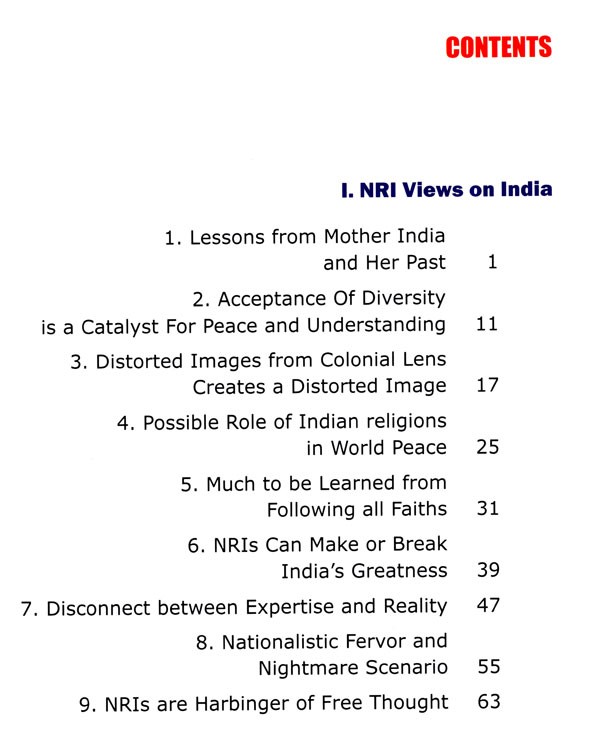

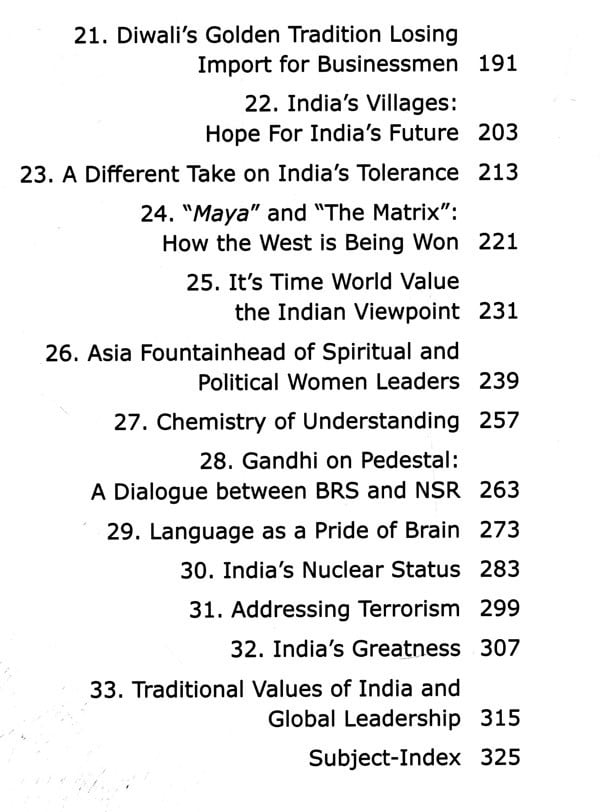

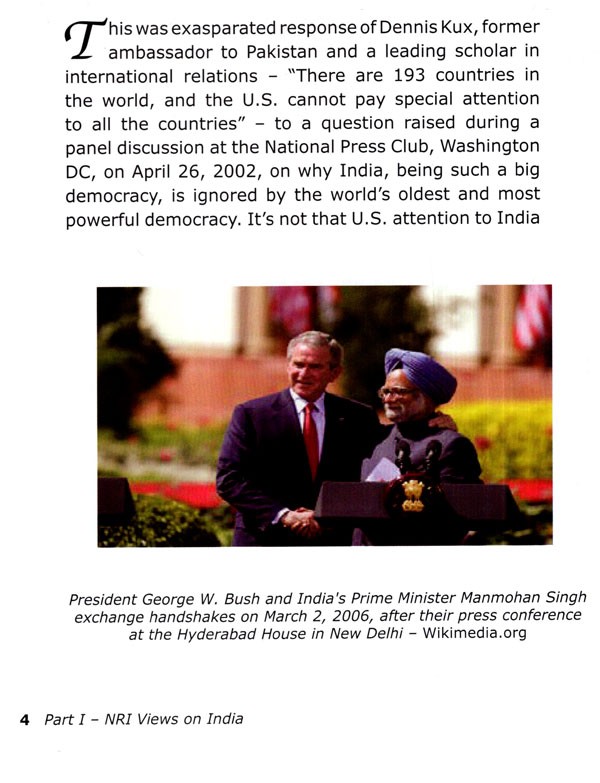
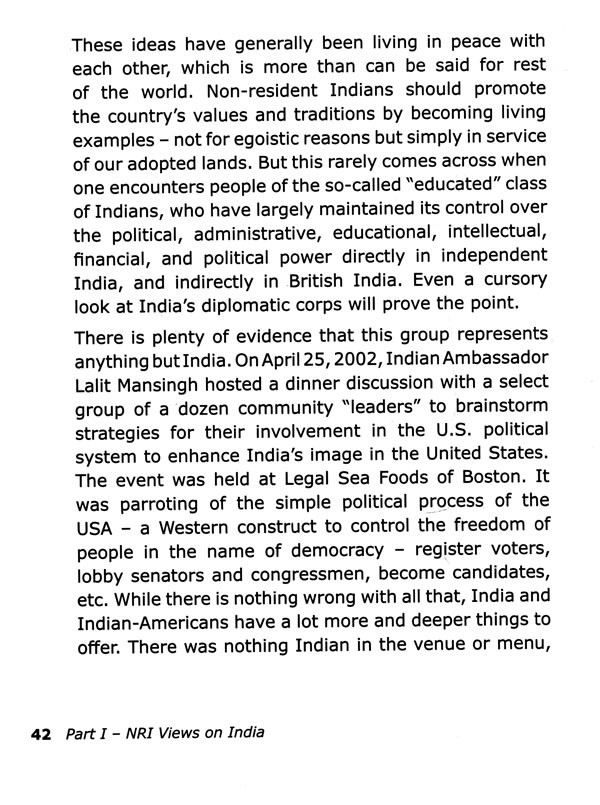
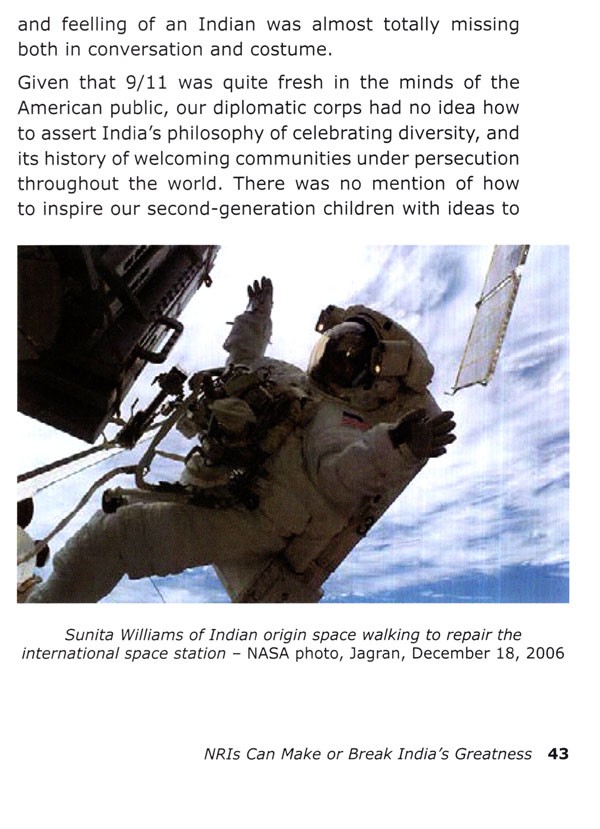
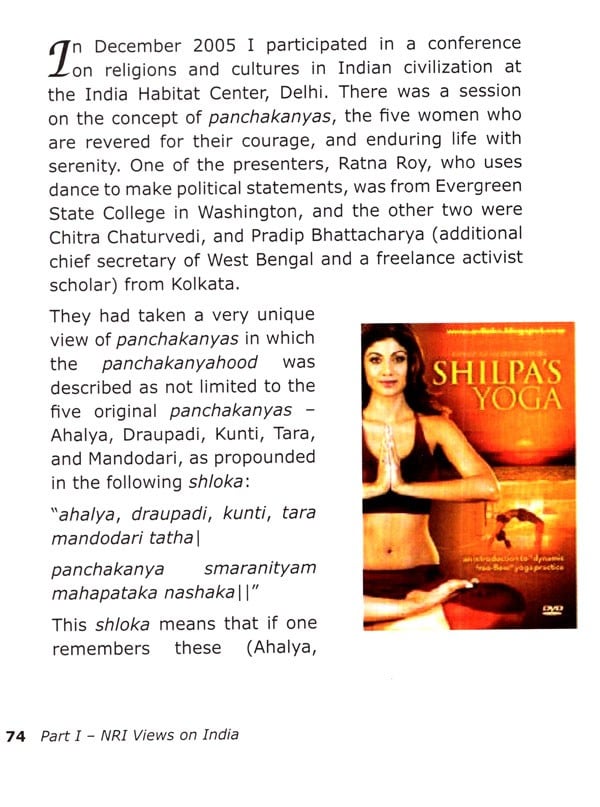
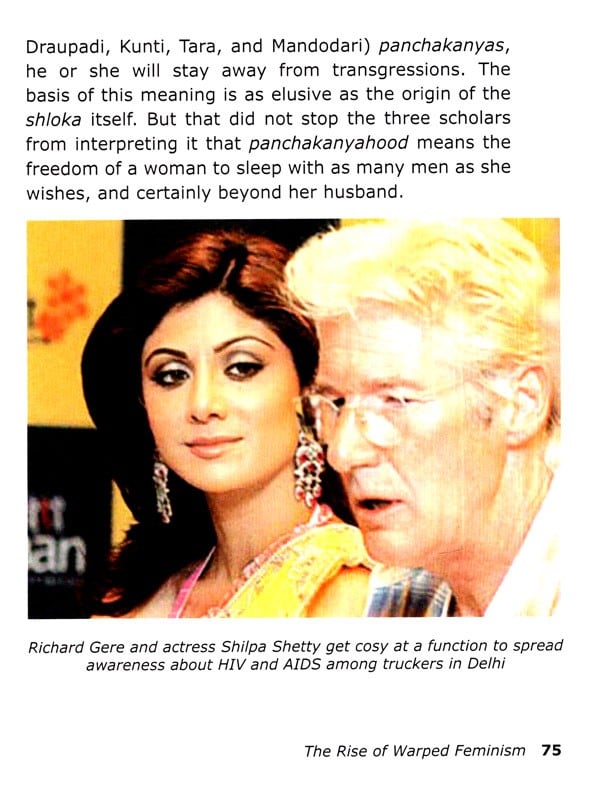
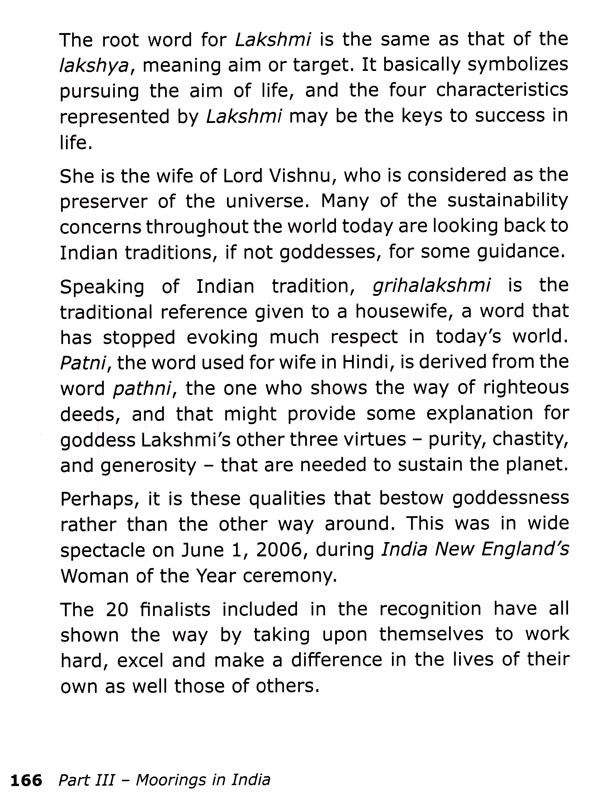

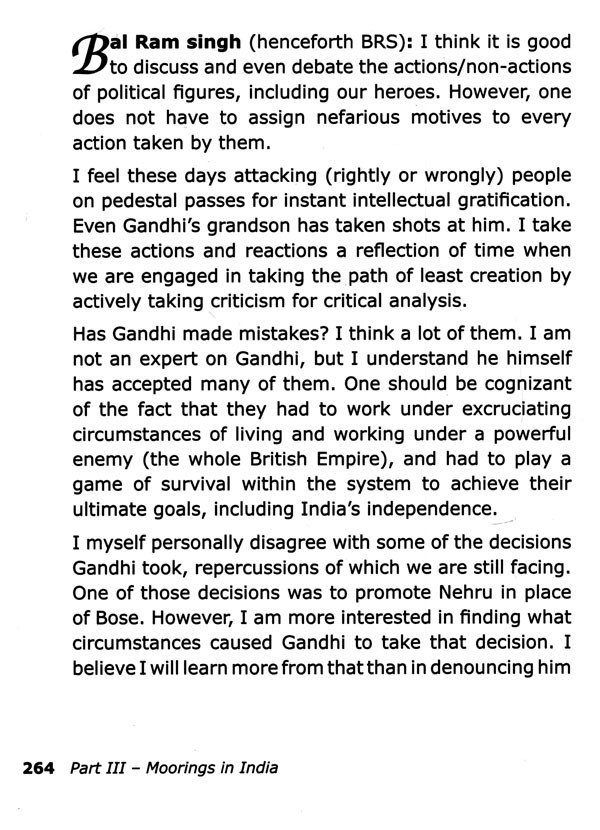
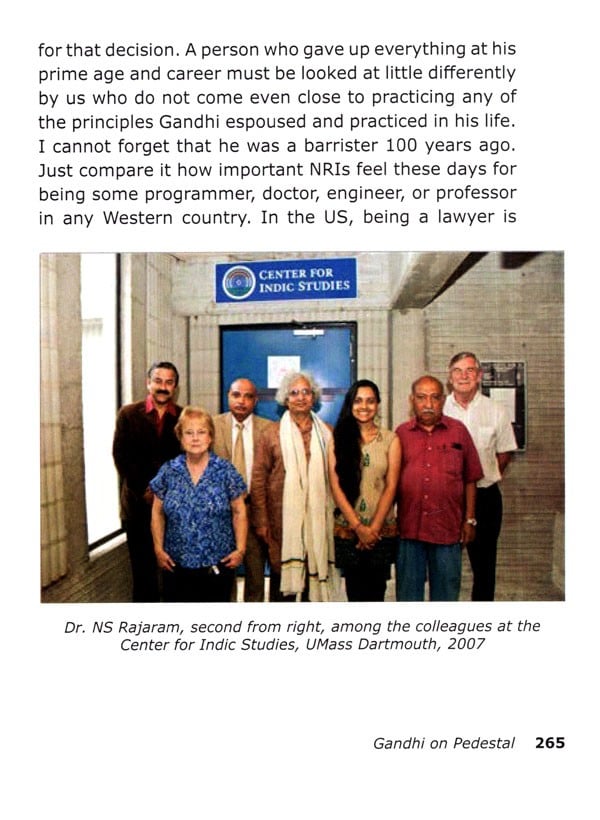
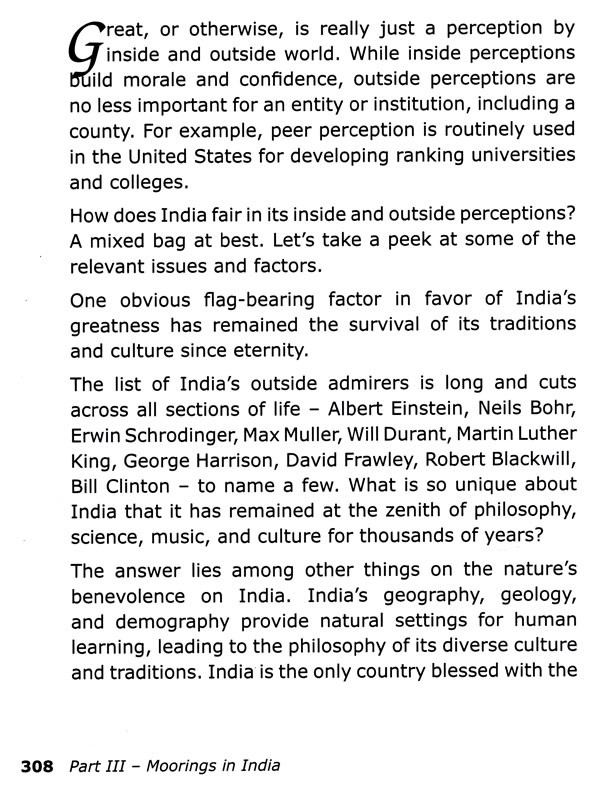
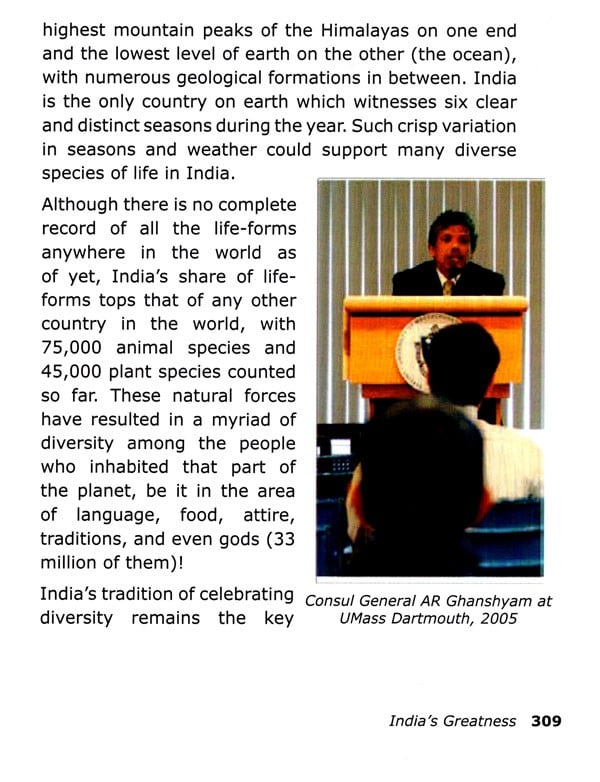
Send as free online greeting card
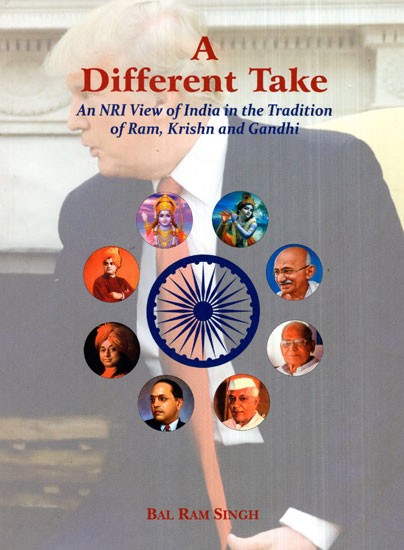
Visual Search